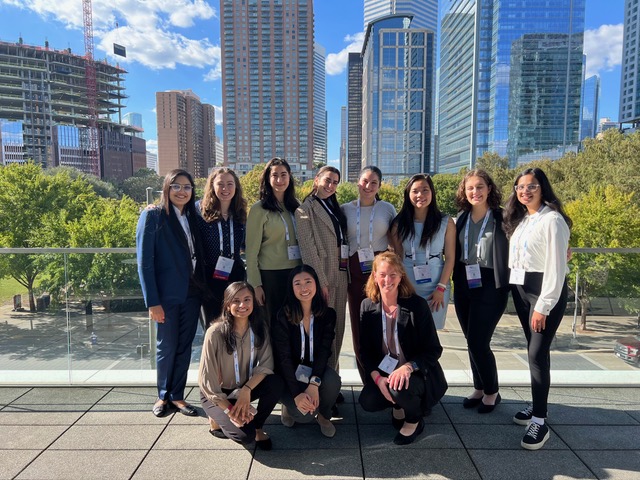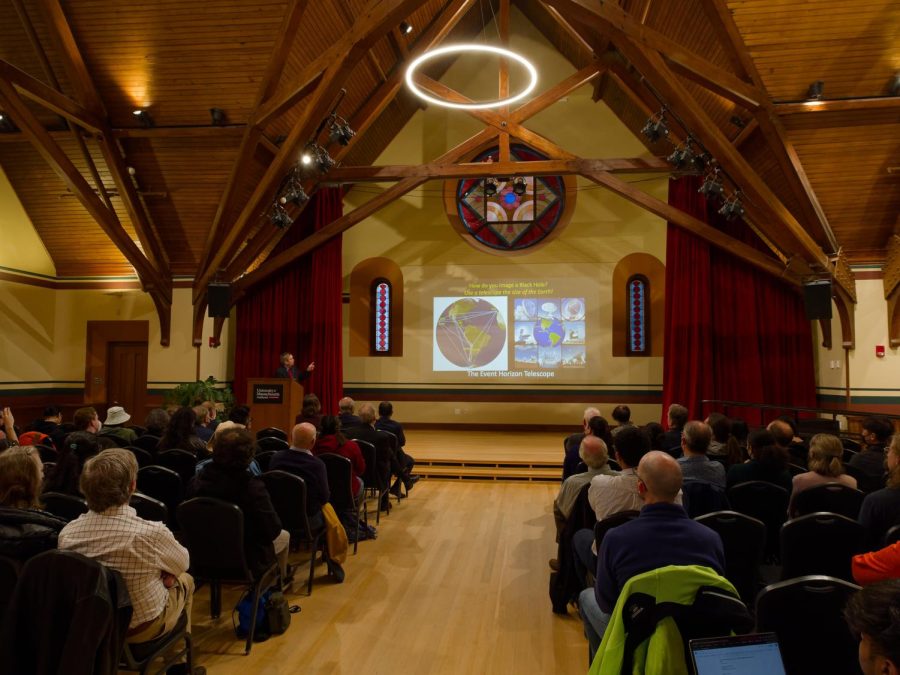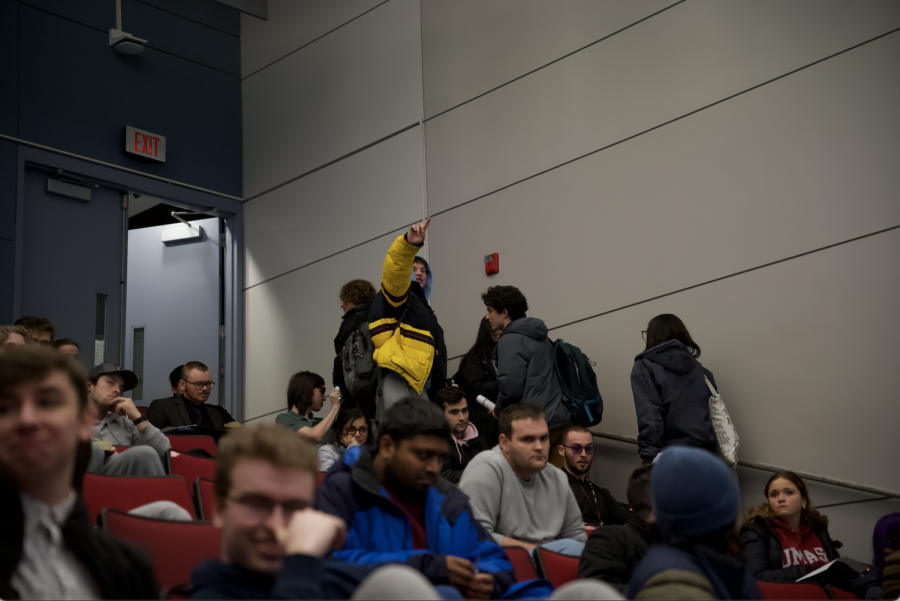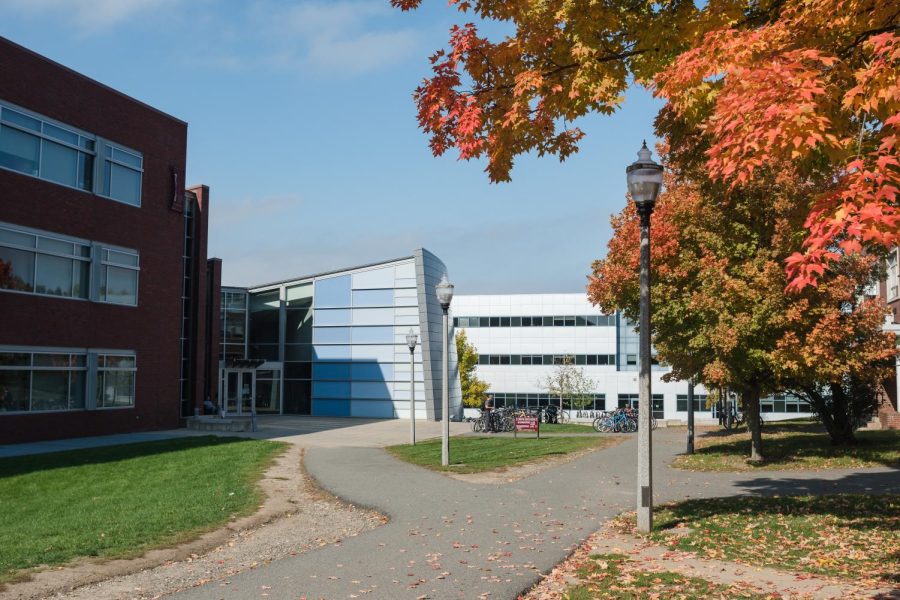
Despite a Supreme Court decision nearly 30 years ago barring creationism from being taught in science classrooms, a recent study has found that over 900 high schools in the United States still teach this theory in schools.
Political Science Professors from Penn State University Michael B. Berkman and Eric Pultzer completed the study “Evolution, Creationism, and the Battle to Control America’s Classrooms,” that surveyed 926 public high school biology teachers. The study, published in Science Magazine on Jan. 28, found that 13 percent of the high school teachers surveyed advocated for creationism by presenting it in the classroom in a positive light, 28 percent present evolution as the basis of biology and as a theory supported by evidence and 60 percent of teachers surveyed were advocates of neither side.
Creationism is the theory that God created the universe and all living things within it, and is taken from the Bible’s Book of Genesis.
Teaching creationism was barred in 1987 through the Edwards v. Aguillard Supreme Court decision that clearly bans teaching creationism in science classrooms on the grounds that it gives precedence to one set of religious beliefs. A similar ruling in 2005, Kitzmiller v. Dover Area School District, struck down the modified creationism teaching variant “intelligent design” in Pennsylvania.
“Evolution is the founding theory of biology which all the rest of it is based,” said Joseph Elkinton, a professor in the organismic and evolutionary biology graduate program at the University of Massachusetts. He noted Charles Darwin and his theories, and gave examples of concrete evidence in favor of evolution, such as bacteria developing a resistance to antibiotics.
Elkinton teaches introductory ecology and described it as an interaction between ecological concepts and evolution. As far as how teachers in the department incorporate evolution in their classes, Elkinton said each faculty member is responsible for designing their own curriculum.
He attributed prominent religious beliefs as to why there is a resistance towards evolutionary biology. “There is a very active religious effort to discredit evolution. Teachers in this country are influenced by some of that.” Elkinton also said the teachers not advocating evolution are ill-informed since “the evidence in favor of evolution is overwhelming.”
Laurie Godfrey, a professor in the anthropology department at UMass, said that she believes misinformation leads to much of the controversy about teaching creationism in high schools.
“It’s not good for our kids to be exposed to information that is wrong,” said Godfrey. “There is a difference between debate between controversial questions versus distortion of data.” Godfrey also said there is plausible evidence for evolution that can’t go ignored.
Eric Pultzer, professor of political science and sociology at PSU and co-author of the study, described the motivation for the research as a look inside the friction between public opinion, which he said largely favors teaching creationism in addition to evolution and federal court rulings that teaching creationism in class is unconstitutional.
Pultzer quoted geneticist Theodosius Dobzhansky’s 1973 essay when asked if teachers should be teaching evolution of species in the classroom, “Nothing in biology makes sense except in the light of evolution.”
He also mentioned the risks he thought were involved in teachers dodging the topic of evolution. “Students are being cheated out of a sound science education. In avoiding the teaching of evolution, teachers adopt a variety of techniques that have the effect of breeding an uncritical distrust of modern science, and deny students the chance to understand the nature of scientific inquiry.”
Pultzer said teachers that advocate creationism are not confined to one area, as “teachers of all types can be found in every state, often in the same school.”
According to the supplemental document for the article “Defeating Creationism in the Courtroom But Not the Classroom,” the criteria for creationism advocates were to report devoting at least an hour to creationism or intelligent design during class time, and to agree to at least one of two questions as follows, “When I do teach about creationism or intelligent design (including answering student questions), I emphasize that this is a valid, scientific alternative to Darwinian explanation for the origin of species.” Or “When I do teach creationism or intelligent design (including answering student questions), I emphasize that many reputable scientists view these as valid alternatives to Darwinian theory.”
The teachers were categorized as in favor of teaching evolution if they agreed with the following questions: “When I do teach evolution (including answering student questions), I emphasize the broad consensus that evolution is fact even as scientists disagree about the specific mechanisms through which evolution occurred” and “evolution serves as the unifying theme for the content of the course.”
The remaining 60 percent of teachers were categorized as advocates of neither side because many left some of the questions blank.
The survey also asked the science teachers to rate themselves based on how knowledgeable they are in the evolutionary theory. Ten percent of creationism advocates rated themselves as exceptional, 26 percent of evolutionary biology advocates, and seven percent of advocates of neither rated themselves as exceptional.
The study focuses on the ambivalent 60 percent of teachers, where Pultzer attributed this uncertainty to a low level of solid understanding of evolution. Pultzer’s solution to this lack of understanding is strengthening training for pre-service teachers, more specifically at the college level.
Geoff Daigle, a sophomore computer science major from Hanson, Mass. described his high school Whitman-Hanson Regional High School as presenting evolution with facts and supporting evidence. Daigle gave an example of examining similar bone structures between species as some of the evidence presented in his high school. He also said there was not a single word spoken about creationism. He also described his science teachers as really adept in what they were teaching. Daigle clarified that his science teachers never pushed the theory of evolution but merely explained it.
Another student, Joshua Hume, a junior English major from Auburn, Mass. attended Monty-Technical High School. Hume said his teachers treated both creationism and evolution as non-proven theories. He elaborated that the concentration was of the ecology and operations of the planet rather than the origin. Hume praised his high school’s representation of both sides as it let the students decide for themselves. Hume noted allowing the students to make intelligent decisions for themselves is important and necessary.
Nancy Pierce can be reached at [email protected].













ZaaMixtli • Mar 4, 2011 at 11:53 pm
This is insane folks…the rest of the civilized world put teaching creationism behind the two generations ago…I’m mid 50’s, educated in Canada and I NEVER heard the word creationism as any kind of possibility. Grass roots pressure…your kids are not being well served
V • Mar 3, 2011 at 3:10 pm
These laws barring creationism to be taught in schools need to be enforced. The punishment should be a large fine of at least $5,000 and a suspension of the teacher from their school.
2011 • Mar 3, 2011 at 2:09 am
A 2010 survey on creationism/guided evolution and evolution shows some interesting results.
It is clear this survey shows that the less educated group tends to believe more on creationism.
Postgraduate: 22%
College Graduate: 37%
Some College: 44%
High School or less: 47%
Conclusion: creationism is for those educationally challenged.
I hope you are not so ignorant to accept creationism.
Nate • Mar 2, 2011 at 3:10 pm
This shows how little teachers know. In Texas, true story, one high school teacher told us the Berlin Wall was built in the middle ages. Wow. Teachers teaching anything like intelligent design probably are completely misinformed embarrassments to our society and need to be fired anyway.
Quentin Patch • Mar 2, 2011 at 1:00 pm
Why no comment or content from intelligent design experts citing the parts of Genesis they use to generate their questions on information content in living cells.
We knew in 1953 there was writing in our DNA blueprint molecule. Why are they asking “religious” questions when evol proponents should say who taught mere mindless minerals to write? No rocks are doing that anymore; was it just once upon a time long, long ago and far away…?